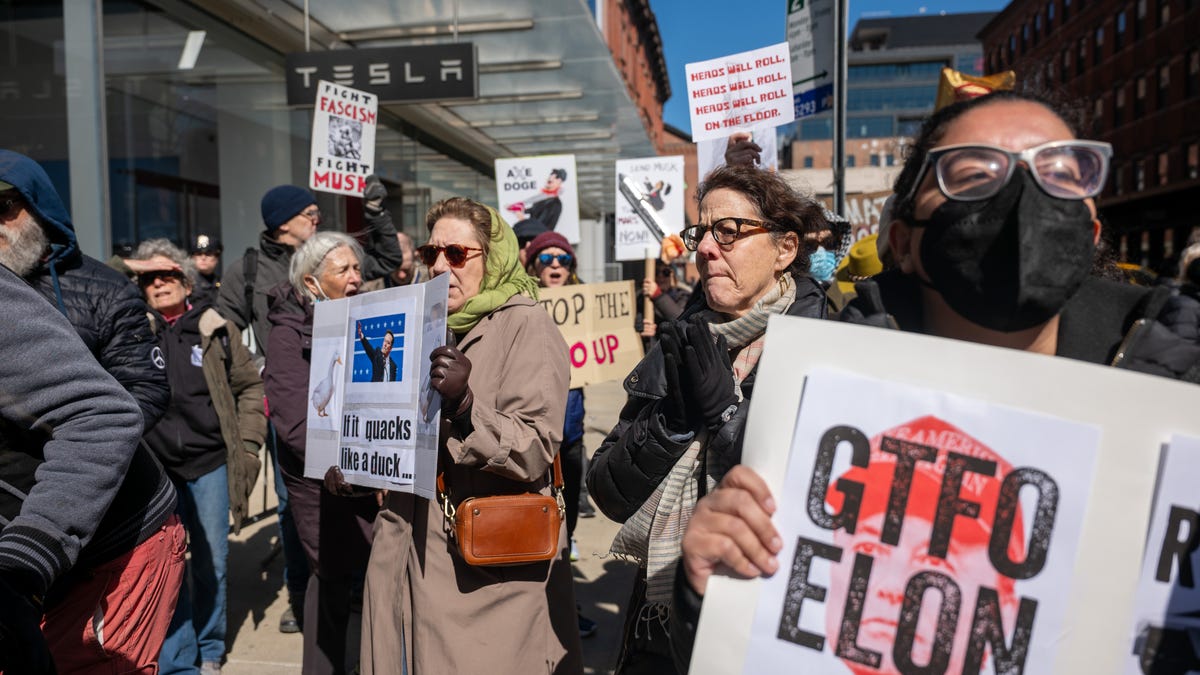
The Shifting Sands of Corporate America: Navigating Protest and Political Intervention
The business world is rarely static, but lately, it feels like we’re experiencing tectonic shifts. Nowhere is this more apparent than in the ongoing saga surrounding Tesla and its charismatic, controversial CEO, Elon Musk. Recent months have witnessed a surge in protests targeting the company, ranging from peaceful demonstrations to more disruptive actions. These protests, fueled by a complex mix of concerns, are forcing a critical re-evaluation of corporate social responsibility and the role of government intervention in the private sector.
The core issues driving the protests are multifaceted. Some critics point to Tesla’s labor practices, alleging unfair treatment of workers and insufficient attention to employee well-being. Others focus on environmental concerns, questioning the true sustainability of Tesla’s manufacturing processes and the overall impact of its products on the planet. Still others express broader concerns about Musk’s leadership style, his pronouncements on social media, and the perceived lack of accountability within the company.
This wave of activism is not just confined to the streets; it’s also playing out in the boardrooms and courtrooms. Shareholder activism is on the rise, with investors increasingly demanding greater transparency and accountability from companies regarding their social and environmental impact. This pressure is putting CEOs under intense scrutiny, forcing them to confront difficult questions about their company’s ethics and values.
Interestingly, this corporate battlefield has drawn in an unlikely player: the government. Recent actions by the White House suggest a growing willingness to intervene in these corporate disputes, potentially to mediate, protect, or even support specific companies facing intense public pressure. This intervention raises serious questions about the appropriate boundaries between the public and private sectors. While some argue that government intervention is necessary to protect workers’ rights, ensure environmental safety, and maintain market stability, others express deep concerns about potential abuses of power and undue influence.
The implications of this heightened scrutiny and government involvement are far-reaching. Companies may find themselves increasingly navigating a complex landscape of social and political pressures, needing to adapt their strategies to address these concerns proactively. A failure to do so could lead to reputational damage, financial losses, and even regulatory action. For investors, this means a need for greater diligence in assessing the social and environmental risks associated with their investments.
Ultimately, the current situation underscores the evolving relationship between corporations, their stakeholders, and the government. The lines between private business and public concern are increasingly blurred, forcing all players to reconsider their roles and responsibilities. The ongoing protests at Tesla serve as a stark reminder that corporate success is no longer solely measured by profits and market share, but also by a company’s ability to navigate the complex web of social and political pressures that define the modern business environment. The coming years will undoubtedly bring more such confrontations, necessitating a thoughtful and nuanced dialogue about the balance between corporate freedom and societal well-being.



Leave a Reply